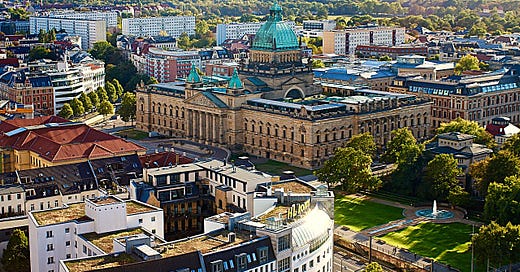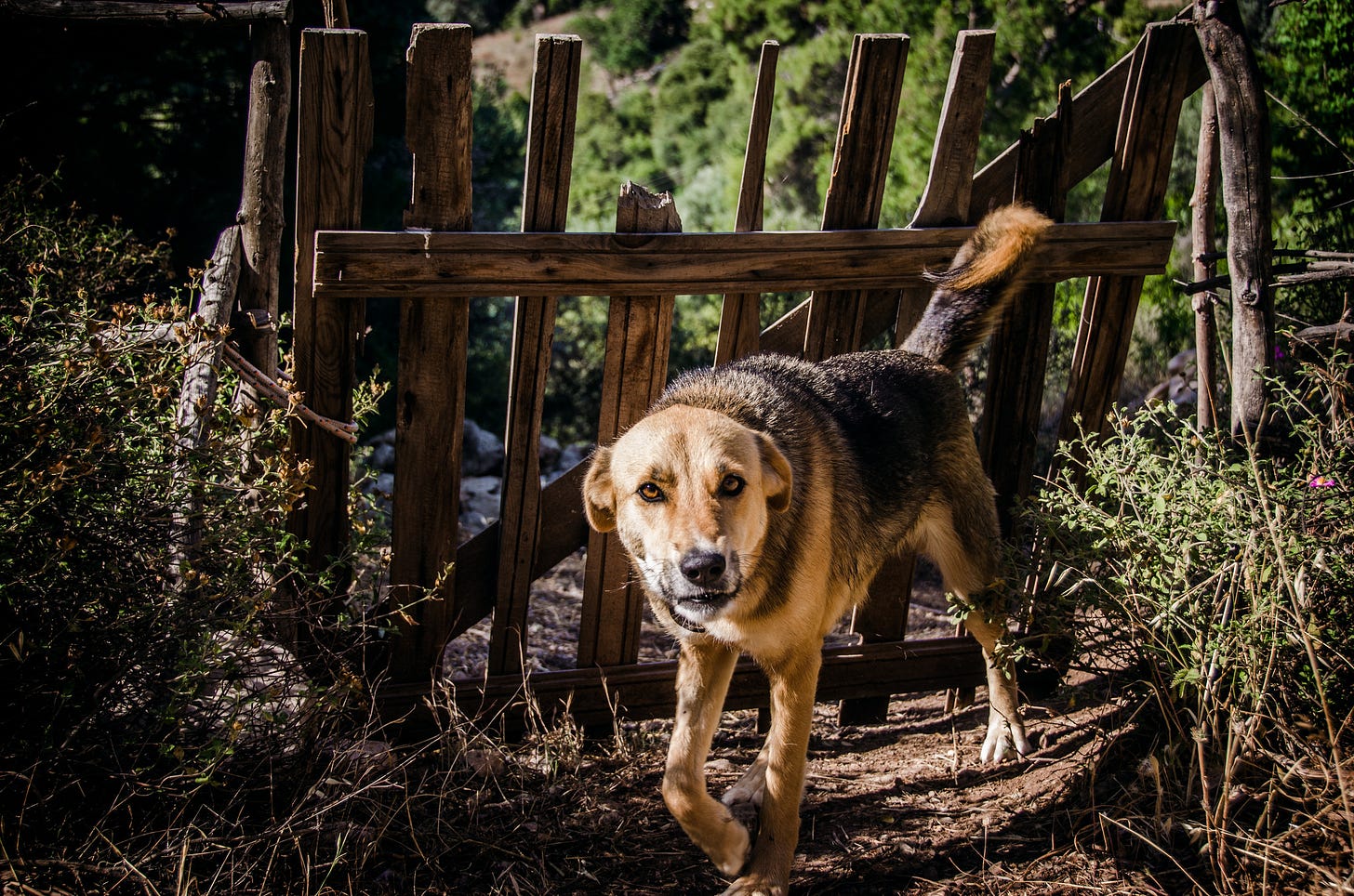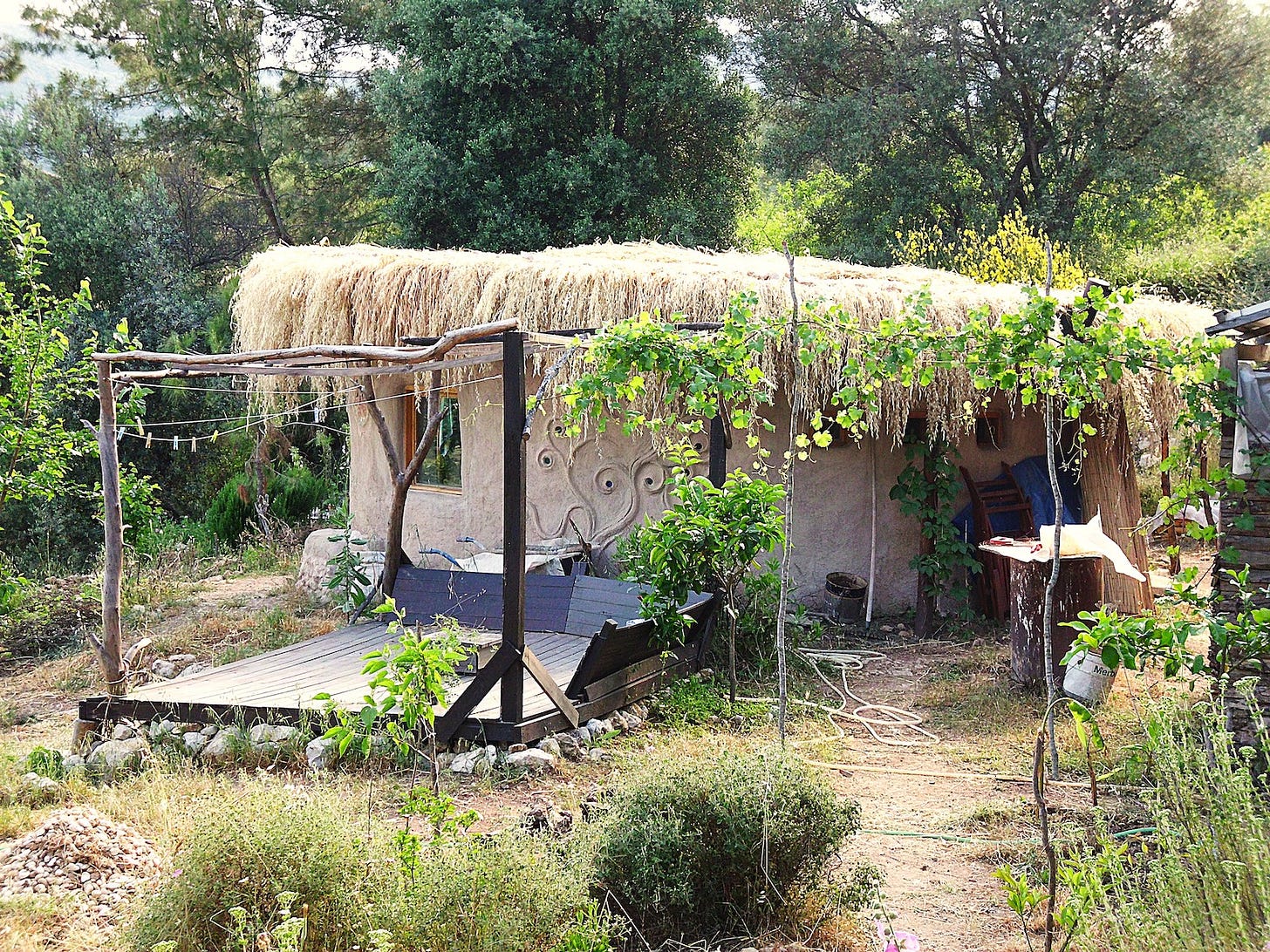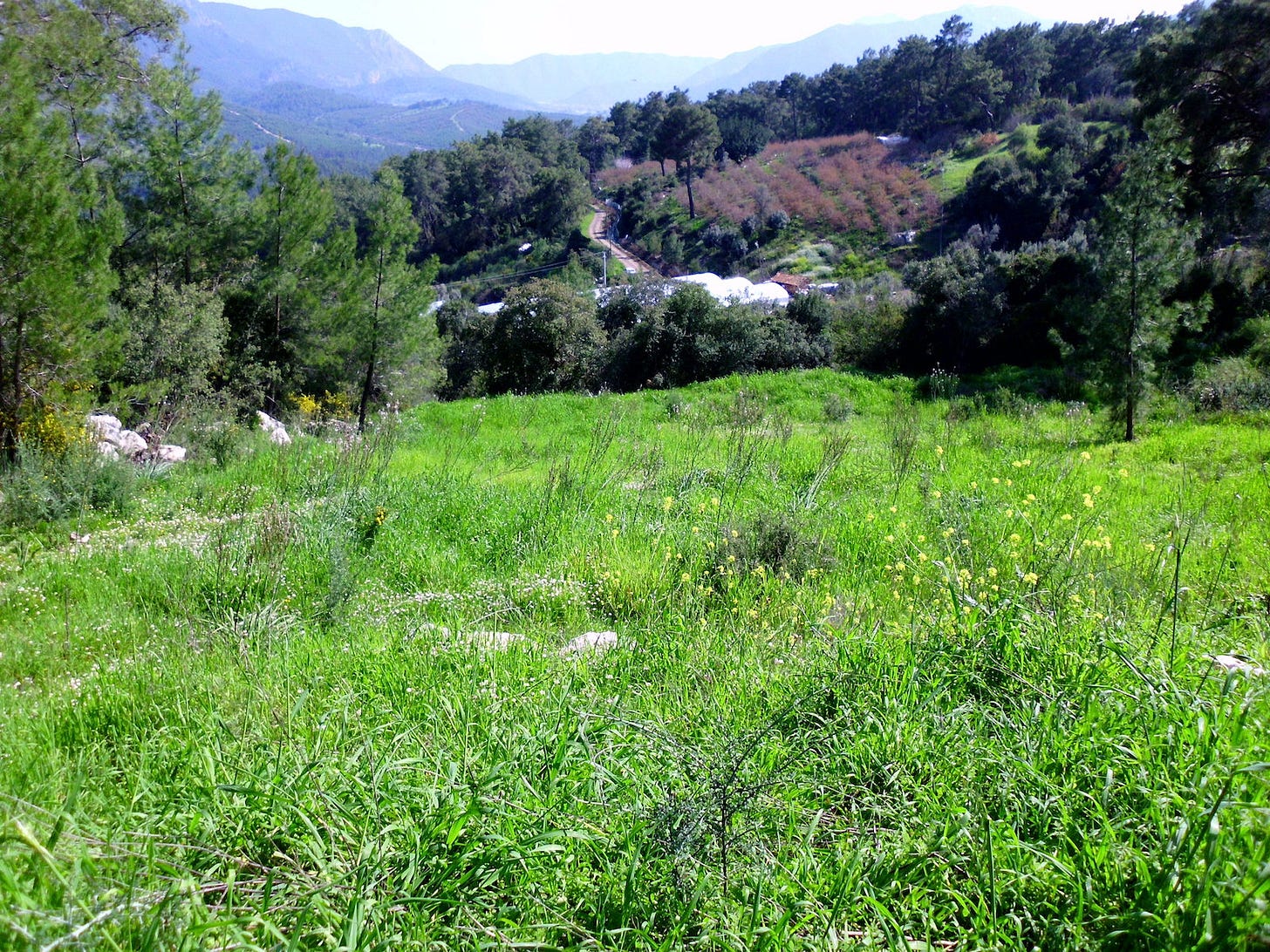Believe it or not, at one point in my youth I used to be something of a hard-line socialist. It seemed like a good idea at the time, you know, everyone sharing the wealth and taking care of one another. Probably that’s what Marx and Engels had in mind when they sat comfortably in their middle-class heads doing what all philosophers do, namely divorce thought and ideas from the physical reality they are grounded in. Because life on Earth isn’t something that passively bends to a philosophy. Or any ideology, come to think of it.
It was back in the early ’90s. I was a student of German in Leipzig, which a couple of years earlier had been in the GDR, part of the old Communist Bloc. I remember walking in the gorgeous parks and chatting with students, comparing the reality in front of my eyes with the pictures the BBC had shown me my entire childhood. I’d grown up with carefully curated reels of shivering people standing in mile-long bread queues with a backdrop of snow blizzards. The clips of the Eastern Bloc were always black and white, depicting poverty and misery. Yet here I was, the sunshine bouncing off the grass in the Clara Zetkin Park, eating delicious ice cream with prestigious universities towering over me. It was my first clear validation of a suspicion I’d always had: The TV and its current affairs departments didn’t tell the truth.

No one had predicted the sudden demise of the Berlin wall. It seemed to crumble overnight. In a matter of months, both us Westerners and Easterners could peer beyond the checkpoints into the forbidden territory beyond.
“So do you think it was better before, or better now?” I’d routinely ask my East German chums. You see, I was eager for them to prove that socialism was better than capitalism. But unlike me, they weren’t just yabbering about something they’d read in a book. They had lived it. And just like anyone who lives anything that distant onlookers have a colossal black and white opinion about, their answers were nuanced.
“Well, some things were better. There was more security. You never worried about unemployment, healthcare, or homelessness,” they’d answer, only to add, “but there wasn’t much choice. And worst of all we weren’t free to travel.”
“Mostly the young are happier with the change because they want to explore the world,” a friend told me. “The older generations tend to be unhappier because suddenly they have no security. They had free health and housing, and now it’s gone.”
As I wandered the university campus and looked up at the Aufbruch statue, I realised I agreed with the young. A life without the chance to travel? Pah! I too would have taken a chance on insecurity if it meant I could wander the world. It was on that sojourn in Leipzig that I stopped being a hard-line socialist, and started asking a whole lot more questions about any ideology thrown my way by academics in warm university offices, be they conservative, leftist or liberal. It all looks so good on paper (or sounds so enticing on a podcast), doesn’t it? Yeees.
But as I wandered through the Marktplatz something niggled me, even back then. Are freedom and security something we really have to choose between? You see, though I might have had romantic mythical notions of socialism, I had practical firsthand experience of capitalism. I knew that in the West we had freedom if, and only if, we had money.
A Familiar Tune
It seems almost amusing to talk about capitalism and socialism today. From the stern of the Great Ship 2025, they are but two dinosaurs flailing about in the tempestuous waters of oligarchic and technocratic chaos. Even so, I hear the same old sea shanty being sung somewhere in the background. It’s a song that says humans shouldn’t own anything. Nowhere does this come up more often than with land ownership. Yet I learned something profound about ownership when I lived alone off-grid on a mountain in Turkey for five years. It’s important, because in its true form ownership is almost a spell.
Gaian Ownership
There’s human reality with its ’isms and ’ologies, and then there’s nature. One of the first things I realised on Mud Mountain was how every single Gaian claims their space. How they own it. How they stand their ground, mark their zone, and make themselves fully present within it. Whether it’s a tiny brave wren, or a bear, a shrub, or an ant, it is a fundamental part of existence on planet Earth to stick the stake of your intent on the land herself, and commit to it. To own it.
Let’s take a tree as an example. Trees claim the earth with their roots, and the sky and the sunlight with their foliage. That space becomes their territory, and they own it and defend it. But here’s the thing: In so doing, they create all kinds of habitats and fruits for other creatures, and often become a territory in and of themselves. This is how Gaia works. Because she doesn’t operate in the limited 1+1= 2 paradigm we humans have shackled ourselves to. 1+1 doesn’t equal 2 in nature. You can plant just one seed and yet get a thousand back! The planet is abundance. It’s a celebration of wealth, whereby one being claiming and caring for their spot creates multiple worlds for other beings to partake of, and those worlds create other worlds, on and on.
Human Ownership
The concept of ownership has been completely bastardised by us moderns. We don’t understand anymore what it means to claim a territory in the old sense. We think it means to draw lines all over it, exploit it, rape it, use it as a resource for some ephemeral figures in a bank account, and force all our arrogance upon it. Humans mostly don’t see the land and her communities as sentient beings. We don’t ask permission or allow the planet to offer us her gifts. Most people, including environmentalists, don’t even know how to listen to land.
Yet when a human joins with a space on this planet in the way Gaia intended, such a power potential is activated. Both the human and the land begin to birth their own world. If the person is sensitive and conscious, incredible things are manifested that change the very fabric of reality. The land will start to vibrate differently. It will attract those who can step up to that frequency, and repel those who can’t. It becomes a world that holds a million worlds.
So, if someone ever says that it’s unnatural or even evil to own a piece of land, just question a little who exactly is going to own it, if we’re not? And whether they going to do a better job of caring for it than we are?
The Territory of Our Lives
Powerful, amazing, and beautiful as land is, however, even being a land guardian is not where our jurisdiction begins and ends. What I’ve experienced during the past year, the first year in almost two decades that I haven’t had land, is that in actual fact it’s our lives that are our territory.
It’s interesting to be back in Western civilisation just as the hull of it starts buckling. What’s clear to me is that for the most part, people don’t own their lives. In fact, they don’t even fully inhabit their bodies or their minds! They often seem to act more like serfs than sovereign beings, living on a vapid prayer that the authorities will take care of them. They vote for this idiot or that tyrant, in despair or frustration, seemingly incapable of understanding that these people have no one’s interest at heart except their own. Like a bad spouse that gambles all our earnings away and runs off with the nanny, we simply don’t need these ‘leaders’.
It’s only when we stop hoping that help is going to come from some “big strong” daddy or mummy figure, stand properly in our inner authority, and own our lives, that we are treated with respect. It’s only then that we are granted true freedom. It’s only then we become an agent of change rather than a pawn in someone else’s chess game.
The Magic Ring
Ownership is slightly juju if you ask me. When human beings properly inhabit the territory of both their lives and their lands, they are granted a special kind of protection. It’s almost like a magic ring is drawn about them. Simply the act of being fully anchored in our bodies sends subliminal messages out into the ether. Instead of begging or crossing our fingers, we quietly and confidently demand what is ours. Even as an internal process, this has incredible power. Instead of lamely hoping a representative or institution will protect us, we act from a place of certainty that we deserve better. That self-respect sends a ripple out that alters the web of all reality.
As the surge of a new, yet in many ways very old kind of order washes over the embankments of our human world, don’t bother clinging to life rafts. Most of them were made in a sweatshop in China and won’t even stand the first wave. It’s time to stop scrabbling about after the crumbs on the floor, and start simply standing up and taking the cake. It’s time to stick a stake in the ground of our reality, and to unashamedly own it. It’s time to drive roots down into the essence of our lives and claim our existential space. Only then will we start to inhabit the world we want to.
In the next Nature of Freedom podcast for paid subscribers I’ll be discussing:
My experiences with the magic ring of ownership.
How Vipassana helps us take ownership of our lives.
The difference between taught leadership techniques and inner sovereignty.
Who really changes the world.
And more…









Beautifully expressed!
You nailed that - I love the description of International Politics as it stands today. I suppose part of standing firmly for ourselves and in our own territory has to be that we ask: How on earth did we let it get this crazy after we had seen what our parents and grandparents went through? Although, looking back, the germs of what has been manifested were visible in the seventies, (when I first began to look) and a strongly 'Socialist' stance seemed to be the only antidote at that time- both sides of the equation played their part in the toxic broth that has resulted. Both sides appeared to throw their lot in with some mythical 'somebody' that would ultimately carry responsibility for the outcomes of EVERYTHING! Such a bad idea - if there was one such entity it would be God, and everyone decided ages ago that following that advice was 'for the birds'. And as 'ownership' came to represent 'wealth' rather than 'Responsible stewardship' the old arguments between Freedom and Socialism continued - while in the background those who knew exactly what goals they had in mind constructed the matrix that has got most human beings by the 'short-and-curlies' now and for the foreseeable future. Yes the hull of the ship is cracked and we are going to sink - and the only question remaining is "Who is providing themselves with a lifeboat?".